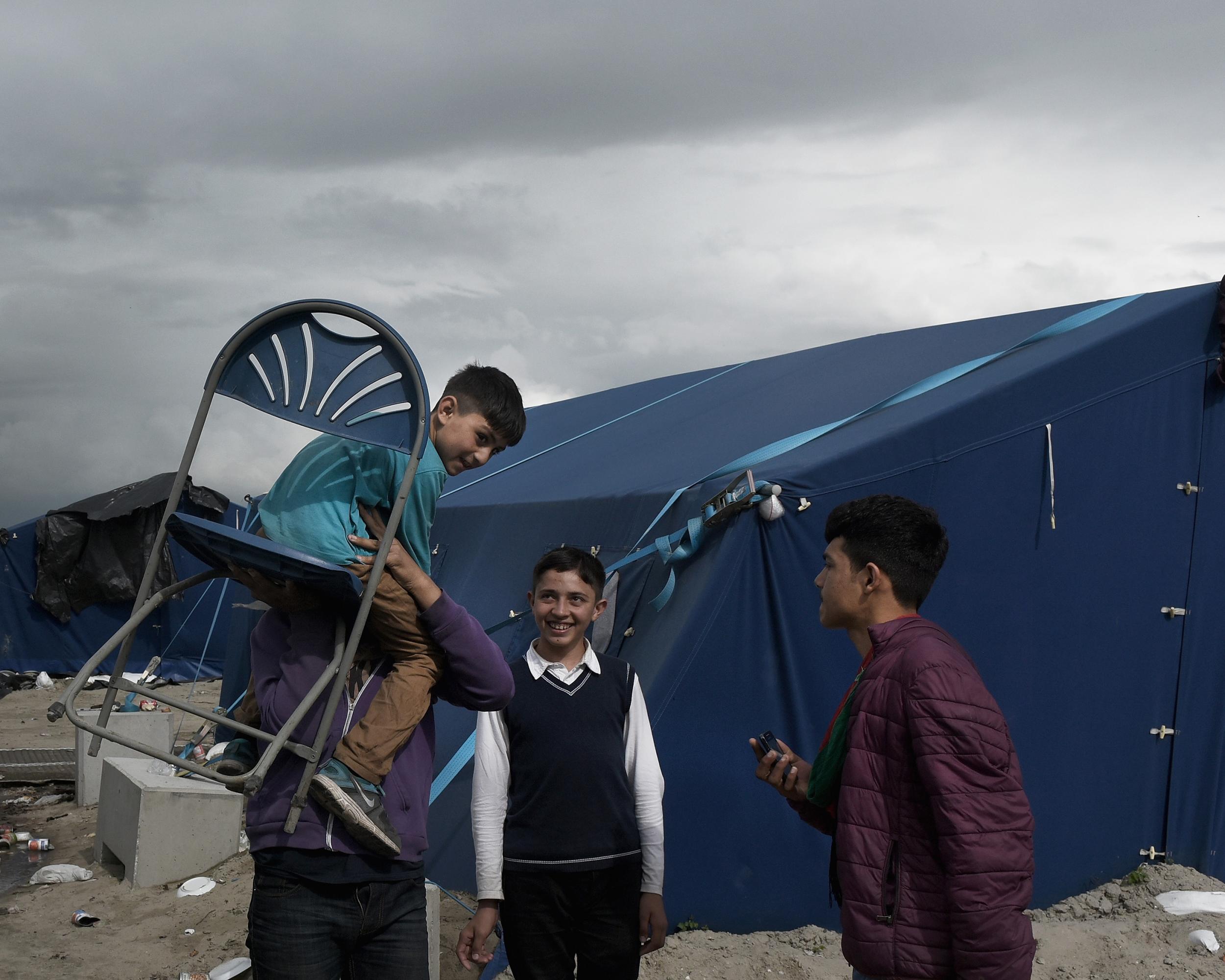British authorities visit Calais refugee camp to discuss care of unaccompanied refugee children
More than 4,000 unaccompanied asylum seekers under the age of 18 have come into local authority care in the UK

Your support helps us to tell the story
From reproductive rights to climate change to Big Tech, The Independent is on the ground when the story is developing. Whether it's investigating the financials of Elon Musk's pro-Trump PAC or producing our latest documentary, 'The A Word', which shines a light on the American women fighting for reproductive rights, we know how important it is to parse out the facts from the messaging.
At such a critical moment in US history, we need reporters on the ground. Your donation allows us to keep sending journalists to speak to both sides of the story.
The Independent is trusted by Americans across the entire political spectrum. And unlike many other quality news outlets, we choose not to lock Americans out of our reporting and analysis with paywalls. We believe quality journalism should be available to everyone, paid for by those who can afford it.
Your support makes all the difference.British councillors are preparing to travel to Calais to hold discussions with the town's mayor over the best way to care for unaccompanied refugee children.
The Local Government Association (LGA) said it hoped the meeting with mayor Natacha Bouchart would lead to more collaboration between French and British local authorities dealing with the refugee crisis.
This would make it easier for councils to adequately care for unaccompanied children and young people in both countries, they said.
Councillors will also visit the ‘Jungle’ migrant camp, where UK charity Help Refugees reported 294 unaccompanied minors lived under squalid, dangerous conditions in April, including one child of just eight years old.
More than 4,000 unaccompanied asylum seekers under the age of 18 have come into local authority care in the UK, but many children still find it impossible to cross the channel - legally or illegally - even when they have family already living in the country.
The LGA does not have the power to bring child asylum seekers to the UK, and instead must meet the care demands placed on them by legal and policy decisions made at a national level.
A House of Lords report published in July said unaccompanied migrant children were being “systematically let down” by the EU and its member states, including the UK, who “shirk their responsibility to care for them as children” and behaved as if children seeking asylum were "somebody else's problem".
Poor treatment has led child asylum seekers to lose faith in national authorities and driven many into the hands of people smugglers and traffickers, the report said. As a result, an estimated 10,000 children have gone missing across Europe.
The Home Office won an appeal in early August against a landmark ruling that allowed three unaccompanied children to join family members in the UK.
Although the three children will not be deported, other unaccompanied minors in the Calais camp will not be able to travel to the UK even if they have family in the country. This means French authorities remain responsible for processing asylum claims made by children in the Calais camps, and the French Government has said this will not be affected by the Brexit vote.
The LGA said the organisation supported the call of the Children's Commissioner for England, Anne Longfield, for French authorities to speed up the processing of lone child asylum seekers in the Calais refugee camp and settle them in new homes or reunite them with their families wherever possible.
“Local authorities stand ready to provide further care for any additional children who are assessed as needing support in the UK," the organisation said in a statement.
Local authority care was also criticised in the Lord's report, which said there was a lack of burden-sharing between councils in the UK, with one authority caring for 412 unaccompanied migrant children, while many others have none in their care.
The LGA pointed to the burden placed on them by national government.
"Councils are also continuing to support large numbers of children in destitute families, whose asylum applications have been refused by the Home Office but who remain in the country and rely on council services, alongside a growing number of children in families supported by the Syrian programme and other schemes that support refugee resettlement," the organisation said in a press release. Local authorities are responsible for costs including schooling, foster care, university fees and housing, and receive funding at a fixed rate from central government.
The LGA also said it was working to develop a more joined up approach within the UK
Councillor David Simmonds, chairman of the LGA's Asylum, Refugee and Migration Task Group, said: “It is imperative that children are kept safe wherever they currently are across Europe.
"If children do come to the UK, councils want to get it right so that children who have experienced horrendous conditions within and since fleeing their country of origin are able to settle into UK life as quickly and easily as possible with ongoing support made available when they need it. Ideally, councils will work alongside government and their partners to assess children and agree their needs before they enter the UK.
"The LGA is also calling for greater national co-ordination to ensure that the many offers from the public to foster or otherwise support these children are directed to their local authority, with more carers urgently needed to provide stable homes for vulnerable children and young people."
Subscribe to Independent Premium to bookmark this article
Want to bookmark your favourite articles and stories to read or reference later? Start your Independent Premium subscription today.
Join our commenting forum
Join thought-provoking conversations, follow other Independent readers and see their replies
Comments